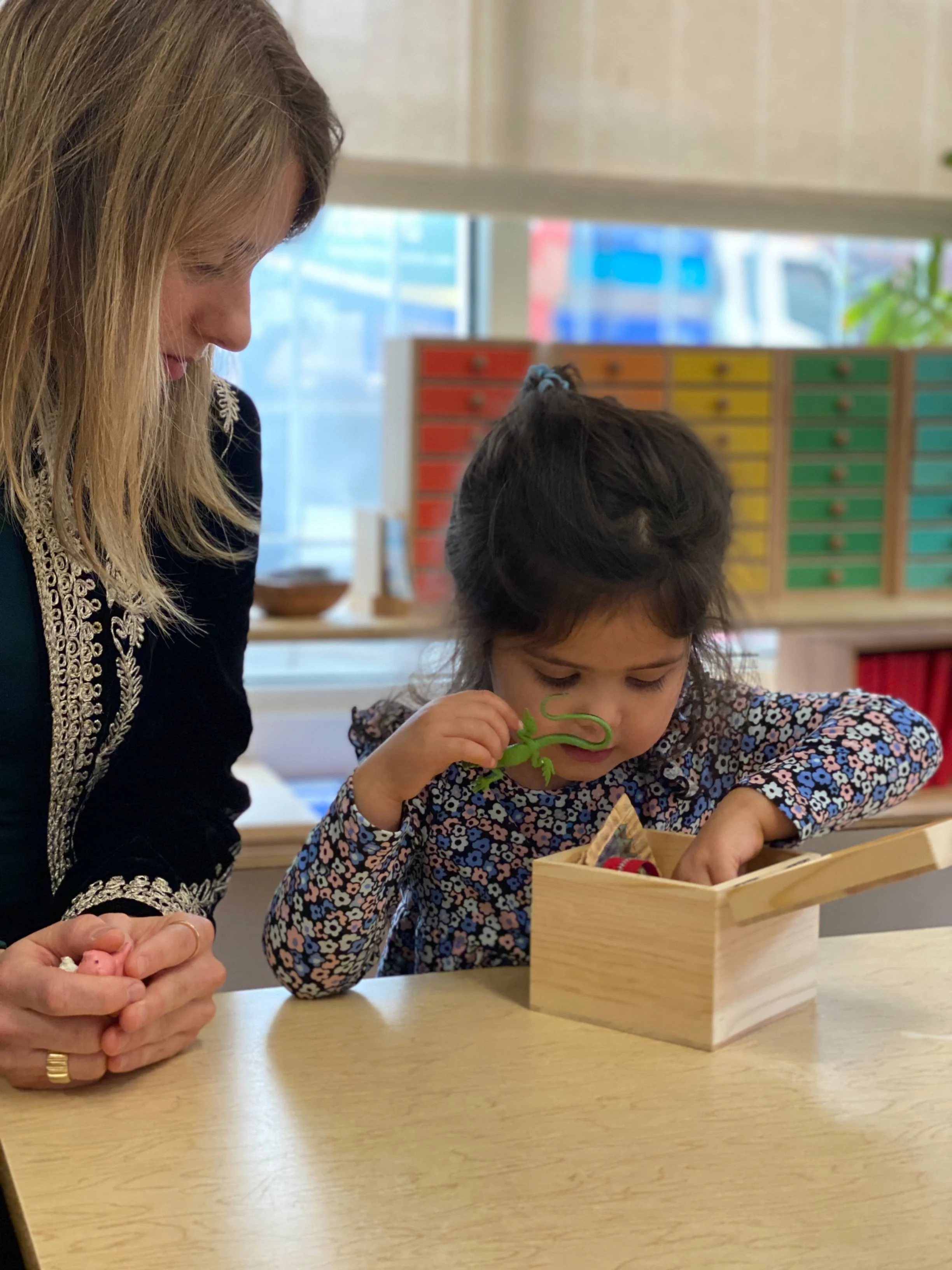The Prepared Adult
“The real preparation of education is the study of one’s self. The training of the teacher who is to help life is something far more than a learning of ideas. It includes the training of character; it is a preparation of the spirit.”
The Adult as the Foundation
In the Montessori community, the adult provides the structure upon which everything stands. Upholding the principles of Montessori education, the adult sets a clear example for children, shaping the tone and character of the classroom environment. The success of the Montessori method fundamentally depends on the adult’s preparedness, character, and actions, forming the critical foundation for children’s learning, growth, and development.
The Prepared Adult
To be a prepared adult in Montessori is to show up for children as an ongoing learner; curious, reflective, and open to growth. Practically, this means studying Montessori pedagogy in depth, understanding the child, and knowing the scope and sequence of materials and presentation techniques so lessons are clear, purposeful, and developmentally aligned. The adult’s preparation extends to the environment itself: selecting and organizing materials with intention so children can work independently and with confidence.
Equally, the prepared adult takes a scientific stance. They observe with care, record what they see, analyze patterns, and let evidence, not habit, guide next steps. Observation notes inform which presentations to offer, which skills to revisit, and how to adjust the environment to better meet the needs of both the individual child and the community.
At the heart of this work is inner preparation. The prepared adult cultivates presence, humility, patience, and kindness, setting aside bias and projection to truly receive the child before them. They attend to their own emotional and spiritual growth so interactions remain authentic and steady. Rather than imposing their will or unresolved conflicts, they meet each child with calm, respectful warmth — attentive to who the child is in this moment. In this model, children are related to as they are now — not through the lens of who they were or a projection of who they might become. This stance honors the infinite potential of each child. Woven together, these practical, scientific, and spiritual strands create a living practice that is adapted to children: grounded, responsive, and deeply human.
“Who are we to be in the presence of the brilliance of children?” — Martha McDermott
From this inner stance flows a reverent approach. The prepared adult recognizes each child’s infinite potential and unique capacity to learn. Rather than employing top-down teaching methods, this respect guides the adult to gently connect children with their environment and then step back to allow authentic, self-directed exploration. In turn, the environment meets developmental needs and fosters predictability, order, beauty, and calm.
Preparing the Environment
The adult is responsible for shaping and preparing the Montessori classroom environment. They carefully select and organize materials which nurture children's curiosity and independence. Once the adult connects a child to the appropriate material and demonstrates its correct use, they intentionally fade away, creating the space for the child to individually explore the material and repeat it as they wish. Through close yet unobtrusive observation, adults assess children's growth and development, noting the next lesson to teach or re-teach to a specific child, and adapting the environment accordingly to meet the needs of the community. By modeling respectful interactions and emotional responsiveness, adults demonstrate behaviors children naturally emulate, fostering a classroom culture aligned with developmentally appropriate practices and promoting mutual respect, compassion, and community.
How this looks in daily practice
In daily practice, adults create a secure environment where children can confidently take risks, make mistakes, and develop autonomy. They actively support children in developing fine and gross motor skills, acquiring practical life skills, building concentration, strengthening intrinsic motivation, cultivating foundational language and math skills, and learning to navigate their community through social-emotional skill development and grace & courtesy. Adults use deliberate movements and precise language to capture children's attention, encouraging purposeful imitation through neural mirroring. Neural mirroring is the brain’s tendency to activate similar circuits when observing an action, priming children to reproduce what they see with accuracy. This aspect of modeling is fundamental to Montessori practice, reinforcing that adult behavior must be consistently intentional and respectful, as children learn through observing and imitating adults. This mindful approach promotes calm engagement and facilitates deep concentration, empowering children to confidently navigate their environment and experiences.
Closing thoughts
The Montessori adult’s purposeful preparation and consistent, reflective practice lay the foundation for children's holistic development. By embodying the principles they wish to instill, adults cultivate an environment where children feel safe, develop a sense of belonging, and are empowered as they develop their will and unique personality.

